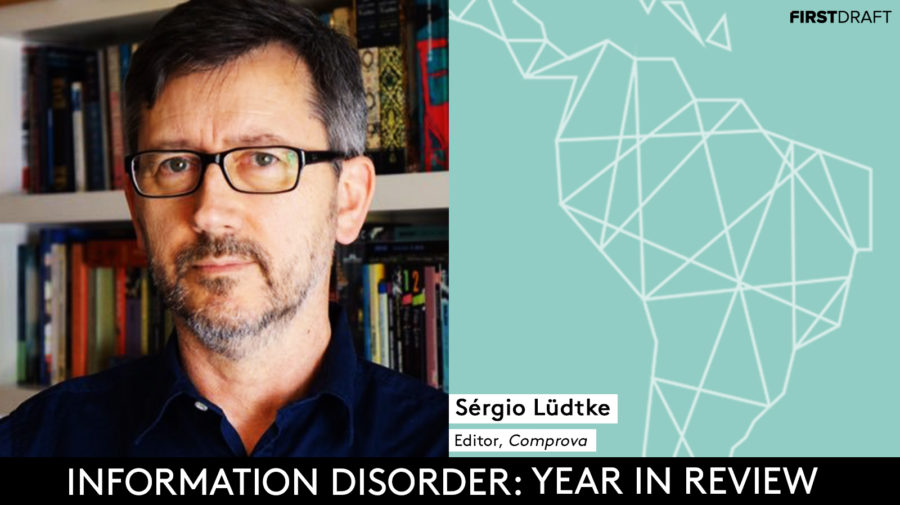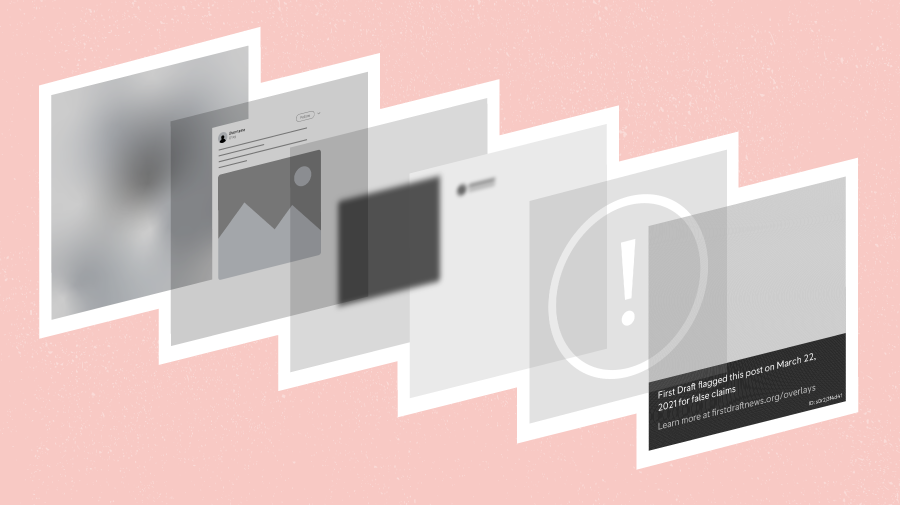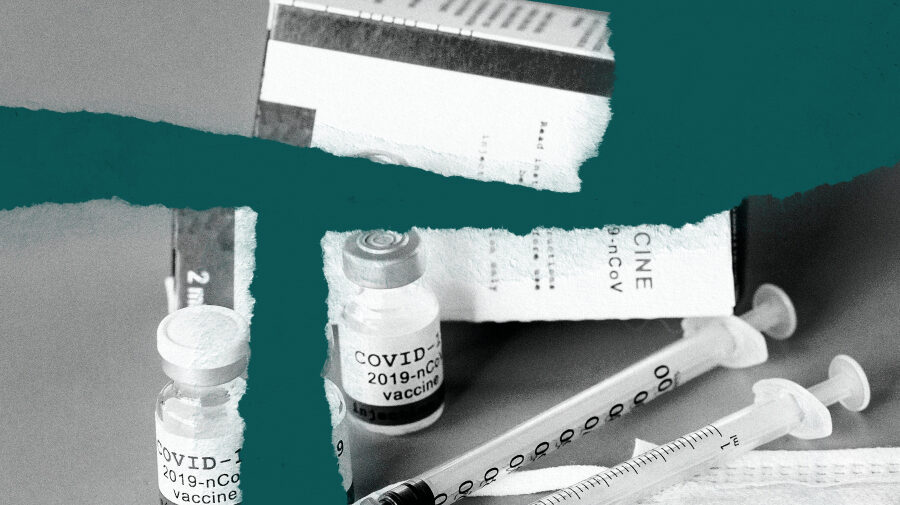Mis- and disinformation moved up the news agenda over the last 12 months as researchers, journalists and the public faced unprecedented problems navigating the online news ecosystem. Information Disorder: Year in Review hears from experts around the world on what to expect and how to be more resilient in 2020.
Sérgio Lüdtke is the editor of Comprova, a collaborative reporting project by First Draft and Abraji. Based in Sao Paulo, he oversees different newsrooms monitoring misinformation and disinformation across Brazil.
First Draft: What was the biggest development for you in terms of disinformation and media manipulation this year?
Sérgio Lüdtke: 2019 was not an election year in Brazil but the political environment in the country maintained the polarisation of the electoral period. So disinformation production remained very active, with traction levels similar to those of last year.
However, without the urgency and pressure of an election campaign, we were able to pay more attention to producing more explanatory and informative content. We were obsessively seeking to find the first sources as well. Finding these original sources made them admit mistakes, post corrections or even delete misleading content.
We emphasised transparency by showing the audience how we verified, and sharing all the evidence that our investigation was able to find out.
What is the biggest threat journalists in your part of the world are facing in 2020 in terms of information disorder?
Outside the electoral period, organised advocacy groups on social networks are less belligerent, although they remain incredibly active. The greatest threat remains the exacerbation of disinformation-driven polarisation. This environment is extremely hostile to journalism and common sense and now creates the conditions for an even more infected environment for the municipal elections that will be held in 5,570 Brazilian cities in 2020.
Brazilian newsrooms join forces once again under Comprova banner to tackle disinformation via @firstdraftnews https://t.co/cDYXrcNjjE
— Sérgio Lüdtke (@ludtke) December 20, 2019
What tools, websites or platforms must journalists know about going into 2020?
We noticed a massive growth of Instagram as a misinformation distribution platform and YouTube’s continuity as a channel for spreading misleading content, not only on its platform but also in other social networks and messaging applications.
In 2019 we saw a move towards simplifying content: maintaining the use of memes, but intensifying the short textual content associated with illustrative images.
What was the biggest story of the year when it comes to these issues of technology and society?
I believe the best story we investigated was that of a viral video that allegedly showed an Israeli plane putting out fires in the Brazilian Amazon. We proved that the aircraft was American, not Israeli, and had been hired by the government to help fight forest fires in Bolivia, not Brazil.
We were able to reach the person who shot the original video. She was a Bolivian who was helping to put out the fire. The video was taken from its original context, and we used various tools to reach the author and to confirm all the details of the investigation. We produced a case study about this verification [below].
✈️
COMO VERIFICAMOS: Avião não apagava incêndio na Amazônia brasileira, mas sim na Bolívia
⬇️⬇️⬇️ https://t.co/iwczHWWWcS— Comprova (@Comprova) December 12, 2019
When it comes to disinformation in your country, what do you wish more people knew?
I wish people used the best vaccine possible against misinformation: which is access to information mediated by journalism. To regain the trust in media, I argue for journalism to be more transparent, to make clear who finances it, who owns it, its relationship policy with sources, and how and why it chooses its investigations.
I would also like to see in media organisations a greater willingness to publish content that can clarify rumours that are spread by ordinary citizens but also by public people and authorities. Journalism needs to be funded, but it is challenging to fight disinformation with paywalls or subscriber-only content accessible only to those who can afford it.
If you had access to any form of platform data, what would you want to know?
I would like to know who is behind the Facebook pages and groups and how much they spend promoting their posts. I preach the same transparency I would like to see in media companies.
This interview was lightly edited and condensed for clarity.
Stay up to date with First Draft’s work by becoming a subscriber and follow us on Facebook and Twitter.






